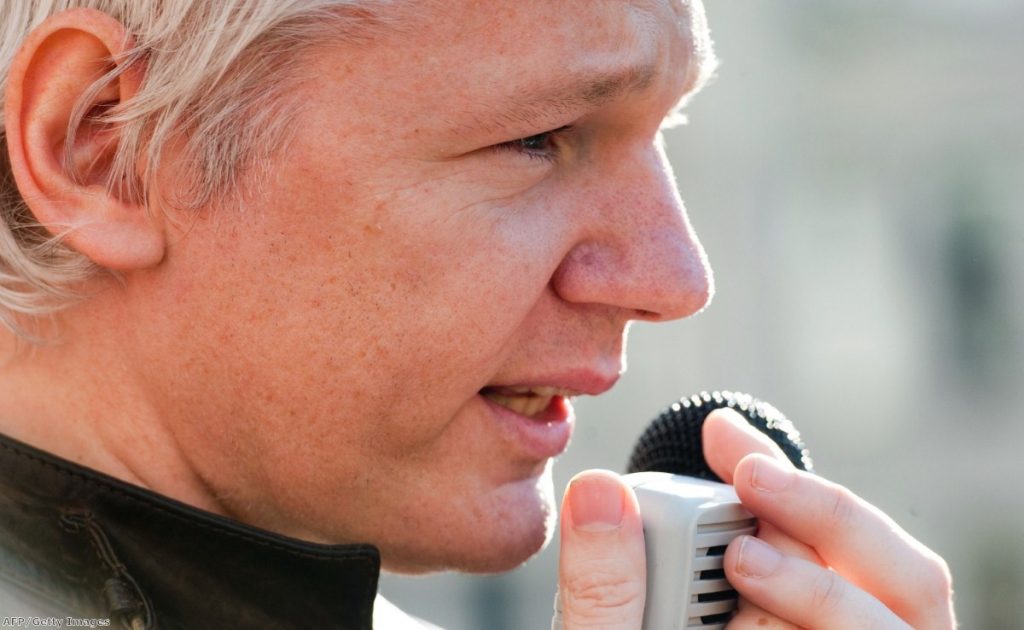Supporters baffled as Assange claims asylum in Ecuador
The strange story of Julian Assange took another unpredictable twist yesterday when the Wikileaks founder turned up at the Ecuadorian embassy in London and claimed asylum.
The Foreign Office said British police could no longer reach the activist, who recently had his appeal against deportation to Sweden rejected by the supreme court.
Mr Assange and his legal team claim Swedish authorities will hand him over to the US, where he could face the death penalty, after he is questioned over allegations of sexual assault made by two Wikileaks volunteers last year.
Ecuador said it was assessing the claim before deciding on its course of action.


"As a signatory to the United Nations universal declaration for human rights, with an obligation to review all applications for asylum, we have immediately passed his application on to the relevant department in Quito," the embassy said in a statement.
"While the department assesses Mr Assange's application, Mr Assange will remain at the embassy, under the protection of the Ecuadorean government."
The embassy was at pains to point out that its deliberations were not an interference in "the judicial processes of either the United Kingdom or Sweden" and that it would consult both parties as part of the process.
The decision to appeal to Ecuador is not quite as random as it might first appear. Mr Assange was briefly offered Ecuadorian residency in 2010, at the height of the Wikileaks release process, by the country's deputy foreign minister.
President Rafael Correa stepped in to reject the proposal however, after stressing that he had not approved it.
The left-wing president, who is a close ally of Venezuelan leader Hugo Chavez, has combative relations with the US government.
Mr Assange still has until June 28th to take his case against extradition to the European Court of Human Rights (ECHR).
Under international law a person surrendered to another country can only be dealt with on the offences for which he was surrendered.
Swedish authorities have already stated that the ECHR would step in if Mr Assange faced the prospect of "inhuman or degrading treatment or an unfair trial" in the US, as his lawyers claim.
A Swedish undertaking to restrict legal moves to the sexual assault question would probably lead Ecuador to reject the asylum request and offer Mr Assange a concrete guarantee.
The Australian activist's celebrity backers, including Jemima Khan and Vaughan Smith, who owns the journalists' Frontline Club, appeared as confused as anyone by his appeal to the South American country.









